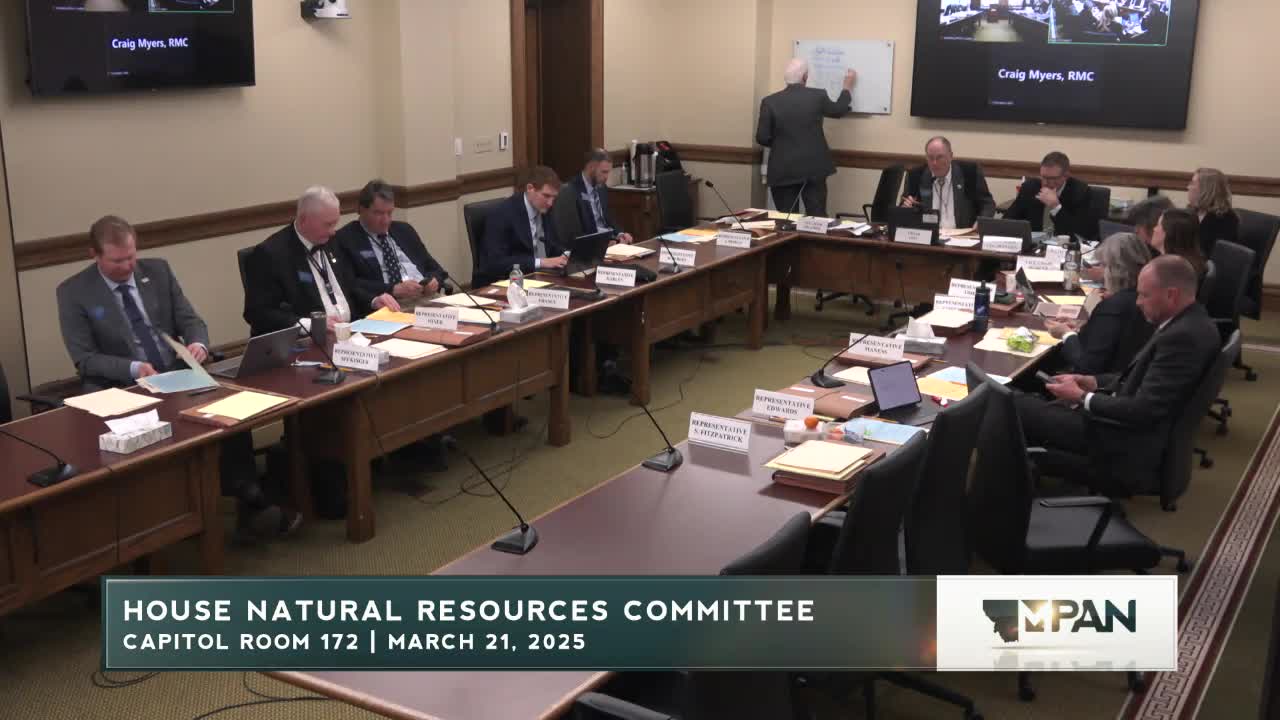Lawmakers debate fixing 'gray area' between streamside management and 3‑10 permits
Get AI-powered insights, summaries, and transcripts
Subscribe
Summary
Senate Bill 472 would adjust penalties and clarify conservation districts' authority under Montana’s 3‑10 permitting process and its interaction with streamside management zone (SMZ) rules; proponents and conservation districts offered conflicting views on an amendment addressing logging activities.
Senate Bill 472, presented to the House Natural Resources Committee, would change enforcement and penalty language in Montana’s Natural Streambed and Land Preservation Act (commonly referenced in testimony as the “3‑10” permit process) and seeks to clarify overlap with the Streamside Management Zone (SMZ) law.
Sponsor Senator Denley Loge described the bill’s purpose as giving conservation districts more enforcement tools and updating fines that date from the 1970s; he said higher fines are intended to deter repeated or large‑scale unauthorized modification of stream banks. “The intent of the bill is to try and preserve our stream banks and and have a little more respect for our 3 10 law,” the sponsor told the committee.
Why it matters: Conservation district supervisors and the Montana Association of Conservation Districts testified they issue hundreds of 3‑10 permits every year and rarely levy penalties; several witnesses described situations where unwilling or wealthy landowners ignored notice letters and required legal action. Sweetgrass County witnesses urged stronger remedies and higher penalties to recover district costs and compel remediation.
Conflicting views over logging amendment: The record shows a central point of contention was a Senate amendment proposed by the Montana Logging Association to exempt silviculture and timber harvest activities from 3‑10 fines where the SMZ law applies. Loggers and some industry witnesses argued the SMZ law already governs adjacent harvest activities and that conservation districts have, in some cases, overextended jurisdiction. Conservation district witnesses, and other proponents, opposed the exemption, saying it would strip districts’ enforcement authority and create uneven local outcomes; Flathead Conservation District urged removing the logging exemption amendment.
Questions from committee members focused on jurisdictional overlap and how double penalties could arise when both SMZ and 3‑10 claims apply. DNRC and SMZ experts explained how SMZ setbacks and rules operate and referred to the SMZ guidance booklet distributed at the hearing. Witnesses described specific case examples of dispute resolution and mediation with landowners.
Outcome and next steps: The committee took testimony from many proponents and some districts asked for more time for statewide comment; the sponsor said staff would take additional drafting steps and convene further discussions to resolve the “gray area.” The committee advanced the bill to further work and asked for follow‑up; the record shows the sponsor indicated additional amendments were forthcoming.
